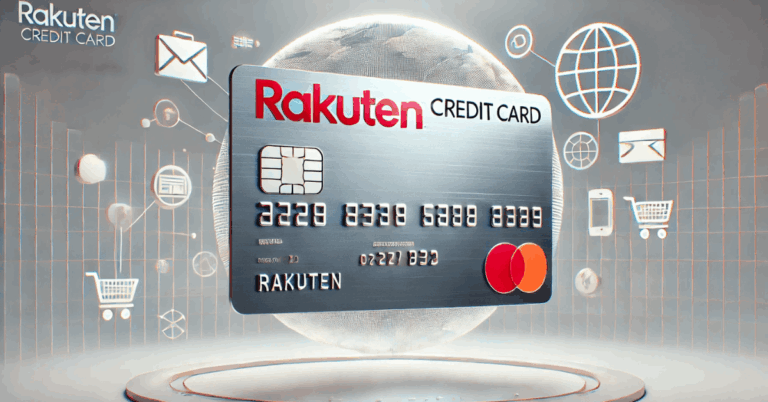Money often triggers challenging emotions, particularly during economically fragile times or for those without a background of wealth. Managing these feelings is crucial for making wise financial choices.
Here are globally applicable tips on establishing a healthy relationship with money and maintaining control of personal finances.
These steps are designed to guide beginners toward financial stability without feeling overwhelmed.
Personal Finance Meaning
Personal finance is crucial for beginners globally. It focuses on effectively managing and planning one’s financial resources.
It encompasses essential activities such as creating a budget to monitor income and expenses, setting financial goals, managing debt, saving for emergencies, planning for retirement, and making informed investment choices.
This knowledge helps understand critical financial concepts like interest rates, taxes, inflation, and risk management, aiming to enhance financial resource optimization and security.
Finance advisors are key in clarifying these concepts, making them more accessible and actionable for individuals.
The following five steps are tailored to equip you with the skills to master a personal budget, ensuring readiness for any future challenges similar to global disruptions like COVID-19.
This approach empowers you to make prudent financial decisions and establish a robust foundation for long-term financial stability.
Why Financial Literacy is Vital for Beginners
Financial literacy is crucial for managing stress and promoting well-being. Here’s why it matters:
- Mental Health: Managing finances proactively reduces stress caused by debt and unexpected expenses, preventing anxiety and depression.
- Decision Making: Every day involves financial decisions, whether minor, like buying coffee, or major, like securing a mortgage. Effective money management skills help make these decisions wisely.
- Stability and Security: A strategic approach to personal finances contributes to long-term stability and security.
- Continuous Improvement: Regularly analyzing financial habits ensures continuous improvement and better economic outcomes.
STEP 1: Set Clear Financial Goals
To master personal finance globally, start by setting clear financial goals. Consider your aspirations, such as purchasing a home, saving for retirement, initiating a business, or funding education. These goals guide your financial strategies and provide motivation.
After determining your goals, develop a plan to achieve them by breaking them into smaller, manageable steps.
For example, if you aim to buy a home, plan to save for a down payment, enhance your credit score, and explore mortgage options. Setting precise targets and timelines ensures you remain driven and focused on your financial objectives.
Your financial goals need to reflect your values and priorities, guiding how you allocate your resources to support what’s most important to you. This first step is crucial in laying a solid foundation for successful financial management.
STEP 2: Create a Budget
Creating a budget is essential for managing your finances effectively. This step involves outlining your income sources, including salary and investments, and detailing all your expenses, such as rent, utilities, and groceries.
By mapping out where your money comes from and where it goes, you establish a plan to ensure you do not spend more than you earn. Different budgeting methods exist—select one that fits your lifestyle and adhere to it.
This practice helps maintain financial control and is crucial for beginners in personal finance globally.
STEP 3: Establish an Emergency Fund
Your third step in mastering personal finance globally involves setting up an emergency fund. This is a designated savings account intended for unforeseen financial emergencies, such as sudden unemployment or unexpected healthcare costs.
Ideally, this fund should contain sufficient funds to support three to six months of your living expenses. An emergency fund bolsters financial stability and ensures you remain prepared for financial surprises.
STEP 4: Manage Your Debt
To master personal finance globally, managing debt is essential. Your initial focus should be reducing high-interest debt. Pay off credit cards and loans with the highest interest rates first and ensure timely payments.
After addressing high-interest debt, prioritize the remaining debts. Debt consolidation or settlement options might be considered to streamline this process and reduce the financial burden more efficiently.
This step is vital for establishing financial stability and progress.
STEP 5: Save and Invest for the Future
To ensure long-term financial stability globally, initiate savings early and diversify investments. Focus on constructing a portfolio that includes various financial instruments such as stocks, bonds, and mutual funds.
These investments aim to generate returns over time, contributing to wealth accumulation and financial independence. Prioritize comprehensive research to comprehend potential risks associated with different investment options fully.
Implementing and regularly updating a solid financial plan is key to effectively managing personal finances. This approach facilitates the attainment of financial freedom and security.
Essential Principles of Personal Finance for Beginners
Personal finance principles are universal and relevant to individuals at any life stage. This section outlines eight core principles to help beginners globally optimize their financial management.
These include budgeting, saving, investing, managing debt, understanding credit scores, setting financial goals, planning for retirement, and safeguarding against financial risks.
Each principle aims to equip you with the knowledge to control your financial future effectively.
1. Create a Monthly Budget
Establishing a monthly budget is the initial step for beginners globally in mastering personal finance. This step is crucial as it lays the groundwork for all subsequent financial practices.
To manage personal finances effectively, one adopts a zero-based budgeting technique. In this method, the difference between income and expenses should result in zero, implying each dollar is allocated a specific purpose within the budget.
Here’s a streamlined approach:
- Identify Monthly Income: Record all sources of income.
- Enumerate Expenses: Include all categories such as donations, savings, and expenditures.
- Balance the Budget: Ensure expenses match the income, achieving a zero result.
- Monitor Expenses: Keep track of spending throughout the month.
- Prepare for the Upcoming Month: Set up a new budget as the current month concludes.
This strategy ensures every dollar is efficiently utilized, avoiding any wasteful expenditure.
While various tools and good budgeting apps can aid in budgeting, the fundamental principle remains to control your finances proactively.
2. Live Below Your Means
Ensure your spending is less than your income. Prioritize essential expenses like food, shelter, utilities, and transportation.
Analyze your budget to identify areas for cost reduction. Maintaining spending discipline helps build financial stability.
3. Emergency Fund
Start with a $1,000 fund to manage minor emergencies. Gradually expand this to cover 3-6 months of expenses.
An adequate emergency fund protects against unforeseen expenses, preventing debt accumulation.
4. Debt Management
Avoid debt, which restricts financial growth. Use the debt snowball method to eliminate existing debts: List debts from smallest to largest, pay minimums on all but the smallest, and allocate extra funds to eradicate each debt successively.
5. Future Planning
Invest 15% of your income in retirement once debts are cleared and your emergency fund is complete.
Diversify investments across different mutual fund categories to mitigate risks. Also, future needs like children’s education should be considered, but retirement savings should be prioritized.
6. Insurance and Estate Planning
Secure comprehensive insurance coverage to protect against significant financial risks.
Establish a will to direct the disposition of your assets, ensuring your financial goals extend beyond your lifetime.
7. Tax Management
Understand tax obligations and ensure appropriate tax planning to avoid penalties.
Use tax software or professional services to manage more complex situations, aiming for accurate tax payments.
8. Wealth Over Credit
Focus on wealth accumulation rather than credit scores. A good credit score is optional for financial success.
Prioritize saving, investing, and generous living over maintaining a credit score.
Conclusion
In conclusion, mastering personal finance is essential for long-term stability and independence.
By focusing on core principles like budgeting, saving, and investing, you gain the tools to manage money effectively and navigate economic challenges confidently. This approach empowers you to build a secure financial future globally.












